Discover the captivating story of Curaçao, a Caribbean island intimately connected to the Netherlands in a profound and enduring relationship. From the 17th-century Dutch takeover to the present day, this tropical gem has been shaped by centuries of shared history.
Uncover the unique blend of Dutch influences showcased in the island’s architecture and indulge in the mouthwatering flavors of local cuisine, inspired by Dutch traditions.
Amidst this cultural fusion, however, challenges and tensions arise as Curaçao navigates the delicate balance between autonomy and preserving its ties with the Netherlands. Embark on a fascinating journey as we delve into the past, unravel the present, and glimpse the uncertain future of this extraordinary bond between Curaçao and the Netherlands.
Historical Relationship
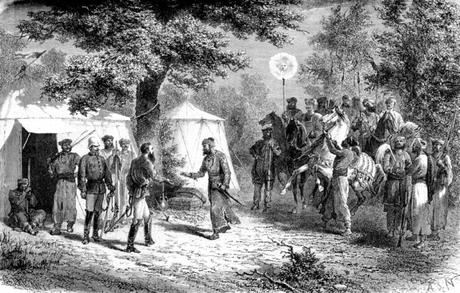
Travelers may discover more than just a spot to relax in the sun on the island of Curaçao, which is located off the coast of Venezuela in the southern Caribbean Sea.It has a lengthy and enduring historical relationship with the Netherlands that dates to the 17th century. In 1634, the Dutch West India Company took over Curaçao from the Spanish, initiating the era of Dutch influence. The island quickly became a major center for international commerce, particularly the slave trade, deeply embedding Dutch cultural and economic practices.
Indeed, Curaçao was a vital cog in the transatlantic slave trade.The island was used extensively by the Dutch to import and sell Africans who were then sent to plantations across the Americas. The echoes of this dark period are still heard today, resonating in the cultural landscape and collective memory of the island. However, the end of the slave trade in 1863 marked a shift in Curaçao’s economic trajectory and its relationship with the Netherlands.
Post-abolition, the island faced a period of economic downturn. Yet, it remained a Dutch colony, with Amsterdam continuously influencing the local governance, economy, and culture. A Dutch Governor acted as the head of state, ensuring the interests of the Netherlands were represented. IIt was a time of considerable cultural interchange as well as conflict and strife.
The 20th century saw the discovery of oil off the Venezuelan coast, which helped Curaçao’s economy. The Royal Dutch Shell established a large oil refinery on the island, bringing an influx of jobs and sparking a wave of immigration from neighboring countries. Despite this economic boom, the social divide between the Dutch expatriates and the local population widened, laying the foundation for future changes in the Curaçao-Netherlands relationship.
Decolonization Process
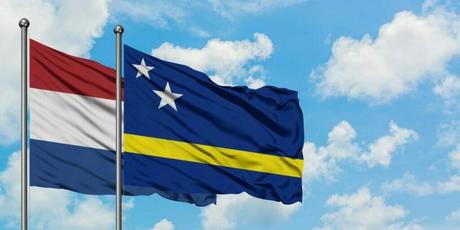
After World War II, Curaçao’s decolonization commenced in earnest. The Kingdom of the Netherlands attempted to reevaluate its relationship with its foreign possessions after the war. In 1954, the Charter for the Kingdom of the Netherlands was enacted, signifying a new era of constitutional equality between the Netherlands and its Caribbean territories.
The Charter led to Curaçao joining the Kingdom of the Netherlands together with other Dutch Caribbean islands. This status offered a degree of self-governance, allowing Curaçao to control its internal affairs while the Netherlands maintained responsibility for defense and foreign policy. The move represented a step towards greater autonomy, yet many in Curaçao felt it was not enough.
Independence discussions persisted during the latter half of the 20th century. Some argued for complete sovereignty, while others pushed for closer ties with the Netherlands. Tensions escalated in the 1980s, driven by economic hardships and increasing dissatisfaction with political corruption. Yet, the desire for complete independence never gained enough traction among the population.
In a landmark decision in 2010, Curaçao was granted further autonomy as it became a separate country within the Kingdom of the Netherlands. This decision reflected a desire for self-determination, while maintaining strong ties with the Netherlands. The Dutch monarchy remains as the head of state, represented locally by a governor, but Curaçao has its own parliament and controls most of its internal affairs.
Current Relations

Curaçao and the Netherlands currently have a complicated and multidimensional relationship. On the one hand, the two have solid bonds that have developed through the course of extensive historical and cultural exchange. The Dutch language is still widely spoken on the island, Dutch architecture dots the cityscape of Willemstad, and Curaçao’s legal system is largely based on Dutch law.
However, there are certain difficulties in the connection. There are ongoing debates about the level of autonomy Curaçao should have and the role the Netherlands should play in its governance. Some inhabitants have a strong belief that the Netherlands controls the island’s affairs excessively.
Tensions have arisen recently over matters including immigration, police enforcement, and financial regulation. The Netherlands has offered financial support in exchange for greater control over certain areas of policy, a proposition that has been met with resistance from many in Curaçao. Moreover, the impact of the COVID-19 pandemic has heightened these tensions, with Curaçao relying heavily on Dutch aid to weather the crisis.
Despite these challenges, there are also many areas of positive engagement. The Netherlands provides significant aid to Curaçao, including funding for education and healthcare. Many Curaçaoans study, work, or live in the Netherlands, reflecting the deep people-to-people ties that bind the two countries.
Future Outlook
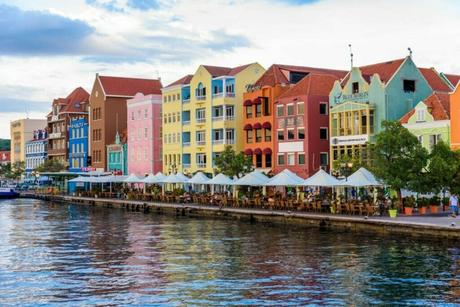
Looking ahead, the relationship between Curaçao and the Netherlands is set to continue evolving. Some predict that Curaçao will seek greater independence, following in the footsteps of its Caribbean neighbor, Suriname. However, the political will for full independence remains unclear, with many Curaçaoans recognizing the benefits of maintaining ties with the Netherlands.
Others believe that a closer relationship is in the best interest of both parties, given their intertwined history and mutual dependencies. Greater collaboration in areas like education, economic growth, and climate change may result from the relationship’s strengthening. Along with that, it could help with Curaçao’s issues with social and economic inequality.
There is little question that the views and ambitions of the Curaçaoan people will have an impact on how Curaçao and the Netherlands interact in the future. Whether that leads to greater autonomy, closer integration, or some unique balance between the two, remains to be seen.
The bond between Curaçao and the Netherlands will always play a significant role in the island’s identity, nevertheless. After all, it’s a bond forged over centuries, shaped by shared history and cultural exchanges. It’s a connection that will undoubtedly continue to change as time passes.
Cultural Exchange
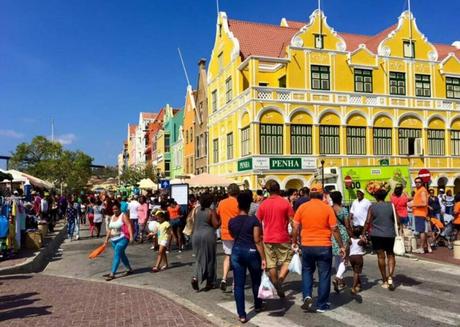
The Dutch influence in Curaçao extends well beyond politics and economics, leaving a visible mark on the island’s cultural tapestry. Dutch customs and traditions have been woven into the local culture over centuries of shared history. For instance, the Dutch language is widely spoken alongside the native Papiamentu, and is the medium of instruction in most schools. The vibrant, pastel-colored Dutch colonial architecture that adorns the capital city, Willemstad, is another undeniable testament to this cultural mingling.
Curaçao’s cuisine also bears imprints of the Dutch. The popular pastechi, a type of pastry filled with various ingredients, has roots in the Dutch pastei. Dutch cheese, herring, and other foods are regularly found in local supermarkets and on dining tables. Likewise, important Dutch festivities like King’s Day are celebrated with fervor on the island, combining Dutch traditions with a distinctively Curaçaoan flavor.
Meanwhile, Curaçao has also made its mark on Dutch culture, primarily through the diaspora community in the Netherlands. The Curaçaoan community has significantly influenced Dutch music, particularly in genres like hip hop and reggae. Additionally, Curaçaoan cuisine, language, and festivals have become part of the multicultural fabric of Dutch cities. These reciprocal influences underscore the deeply intertwined cultural relationship between Curaçao and the Netherlands.
Economic Impact

The economy of the island has been significantly impacted by the long-standing business ties between Curaçao and the Netherlands. One of Curaçao’s principal economic partners, a big tourist destination, and a substantial source of international aid is the Netherlands. Dutch companies, large and small, operate across the island, creating jobs and contributing to economic activity. For instance, the presence of Dutch banks in Curaçao helps facilitate international trade and investment.
In turn, Curaçao plays a role in the Dutch economy, though on a smaller scale given the size disparity between the two. Curaçao acts as a gateway for Dutch businesses into the Latin American market. Furthermore, the island’s offshore financial sector, while controversial, is home to many Dutch businesses. Curaçao supports the Dutch economy in the tourism industry by drawing thousands of Dutch tourists to the island each year.
The economic partnership is not without its difficulties, though. Dutch policies and regulations can have significant impacts on Curaçao’s economy. For instance, Dutch financial scrutiny over Curaçao’s banking sector and demands for economic reforms in exchange for financial aid have sparked controversy. The economy of Curaçao is also very dependent on the Netherlands, rendering it susceptible to changes in the Dutch economy. As such, managing this economic relationship is a delicate balancing act, requiring careful navigation from both sides.
Curacao Netherlands Relationship FAQ
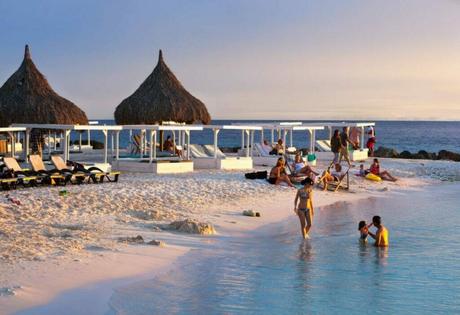
Why does Curaçao play for Netherlands?
Curaçao plays for the Netherlands in international sports competitions due to its status as a constituent country within the Kingdom of the Netherlands. As part of the Kingdom, Curaçao is politically and administratively connected to the Netherlands. Therefore, Curaçao athletes have the opportunity to represent the Netherlands in various sporting events on the global stage.
Was Curaçao colonized by the Netherlands?
Yes, Curaçao was colonized by the Netherlands. In 1634, the Dutch West India Company took control of the island from the Spanish, establishing Dutch rule. The extensive Curaçao Dutch colony had a significant influence on the island’s history, culture, and administration.
Is Curaçao part of the Kingdom of the Netherlands?
A part of the Kingdom of the Netherlands, Curaçao is. As a constituent country within the Kingdom, Curaçao has a specific political status that allows for a degree of self-governance while maintaining ties with the Netherlands. The Kingdom of the Netherlands is made up of the Netherlands, Aruba, Curaçao, and Sint Maarten, each of which has a varying level of autonomy within the overall framework of the Kingdom.

